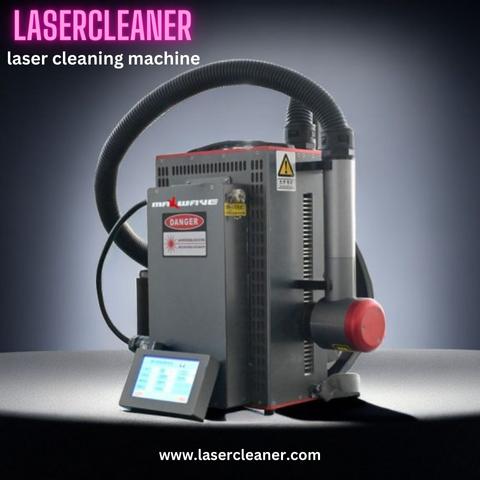
Sparkling Surfaces: The Magic of Laser Cleaner Machines
In the realm of surface cleaning, precision and efficiency are paramount. Conventional cleaning methods often involve abrasive techniques or harsh chemicals, which can damage surfaces and harm the environment. However, a revolutionary solution has emerged: laser cleaner machines. Let’s explore the advantages of laser cleaner machines and how they’re revolutionizing surface cleaning across industries.
Understanding Laser Cleaner Machines: How Do They Work?
Laser cleaner machines utilize high-powered laser beams to remove contaminants from surfaces without causing damage. Unlike traditional methods such as sandblasting or chemical cleaning, laser cleaning is a non-contact process that relies on the energy from the laser beam to vaporize or ablate surface contaminants. This gentle yet effective approach ensures thorough cleaning while preserving the integrity of the underlying material. From rust and paint removal to surface preparation and restoration, laser cleaner machines offer a versatile solution for a wide range of cleaning applications.
Advantages of Laser Cleaner Machines: Why Choose Laser Technology?
- Precision: Laser cleaner machines offer unparalleled precision, allowing operators to target specific areas with pinpoint accuracy. This precision ensures thorough cleaning while minimizing the risk of damage to surrounding surfaces.
- Efficiency: Laser cleaning is a fast and efficient process, capable of removing contaminants quickly and effectively. With high-powered laser beams, even stubborn residues can be removed with ease, reducing the need for manual scrubbing or abrasive techniques.
- Versatility: Laser cleaner machines are suitable for cleaning a variety of surfaces, including metals, plastics, ceramics, and composites. Whether it’s removing rust from metal components or cleaning delicate artworks, laser cleaner machines offer versatility for a wide range of applications.
- Environmentally Friendly: Laser cleaning eliminates the need for harsh chemicals or abrasive materials, making it a cleaner and more sustainable cleaning option. It produces minimal waste and emissions, reducing the environmental impact compared to traditional cleaning methods.
Applications of Laser Cleaner Machines: Where Can They Be Used?
Laser cleaner machines find application in various industries and settings:
- Manufacturing: Removing contaminants such as oil, grease, and coatings from metal surfaces to ensure quality and consistency in manufacturing processes.
- Automotive: Cleaning engine components, wheels, and chassis to maintain performance and appearance.
- Cultural Heritage: Restoring historical artifacts, sculptures, and monuments by gently removing surface contaminants without causing damage.
- Aerospace: Preparing surfaces for bonding or painting by removing residues and contaminants from aircraft components.
Conclusion: Transforming Surface Cleaning
In conclusion, laser cleaner machines represent a significant advancement in surface cleaning technology, offering a precise, efficient, and environmentally friendly solution to the challenges of surface contamination. Whether it’s removing rust from metal surfaces, cleaning delicate artworks, or preparing surfaces for bonding, laser cleaner machines provide a versatile and effective tool for maintaining cleanliness and integrity across industries. With their ability to remove contaminants without damaging the underlying material, laser cleaner machines are revolutionizing surface cleaning practices, paving the way for a cleaner, safer, and more sustainable future.
Leave Your Comment